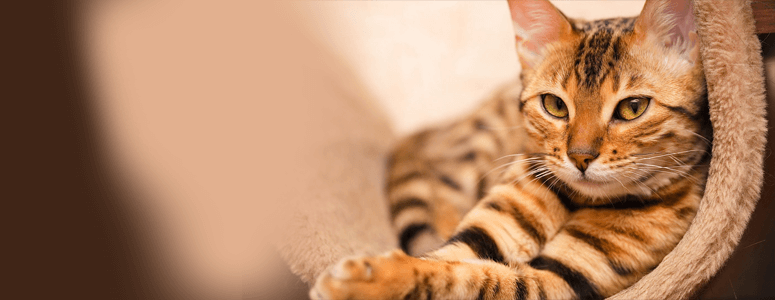
20-Sep-2018 posted-by My Pet Desire

Just like dogs even your cat is prone to illness. Getting them vaccinated at the proper time may save them from lot of diseases. Generally, the ideal time to vaccinate your cat is when it is 6 to 8 weeks old, as before this period its mother’s antibodies that are transferred into its body will help protect it from ailments.
Vaccinating your pet will prevent it from invasion of foreign bodies, bacterias and viruses from attacking them in future. These vaccines will release antibodies into the blood stream which would strengthen the immune system and destroy these viruses immediately as soon as it enters into the system.
These vaccines can be divided into core and non-core vaccines.
Core vaccines are important vaccines or most essential ones which can help stimulate the immune system of cats which will help them fight against the micro-organisms if they are invaded in the future. These core vaccines include feline calici virus, panleukopenia (feline distemper), rabies and feline herpes virus type I (rhinotracheitis).
Non-core vaccines are given depending on feline’s lifestyle. These include Bordetella, feline leukemia virus, Chylamydophila files and feline immunodeficiency virus.
Feline Viral Rhinotracheitis, Calicivirus and Panleukopenia (FVRCP) – Also known as “distemper”, this vaccination is given to protect your feline against three diseases which are calicivirus, feline viral rhinotracheitis and panleukopenia (sometimes called “feline distemper”).
Rabies – As heinous this is for humans, similarly threat it carries for canines and felines. Vaccinating your cat against is very important.
The non-core vaccinations which can be given depending on the lifestyle and necessity of the cat include:-
Chlamydia – This bacteria causes conjunctivitis in felines, which is often included with vaccine for distemper.
Feline Leukemia (FeLV) – if your feline is used to be outdoor for a long period time, this vaccine is important in order to prevent them from against infection which is often transmitted through close contact.
Feline Immunodeficiency Virus (FIV) – similar to the previous one, this is spread through close contact.
Feline Infectious Peritonitis (FIP) – this virus is fatal, if infected your cat can be prone to death as well. This is most common in catteries and feral colonies. This is often spread through close contact and this puts house cats under lesser risk as compared to outdoor ones.
Bordetella – if you are thinking of taking your feline for grooming, it is better to vaccinate your cat with this vaccine, as this bacterium is highly infectious and can lead to respiratory infections.
It has to be noted that as suggested by vets, all the vaccinations are not necessary for your feline. Also the period and duration between two vaccinations depends on depends on age, previous medical history, lifestyle and what type of environment it lives in. Even in these the core vaccines are highly recommended and marked as compulsory by vets. Generally an adult cat is revaccinated annually or in a gap of three years.
Vaccinations helps in stimulating the immune system of felines against micro-organisms. This may sometimes lead to side effects in some cats which is often for a short period of time. These side effects include Sluggishness, Fever, Loss of appetite, Vomiting, Laziness, Diarrhea and often swelling and redness surrounding where the injection is given.
These vaccinations will help prevent your feline from falling ill and strengthen its immune system against future invasions of bacteria and viruses.
